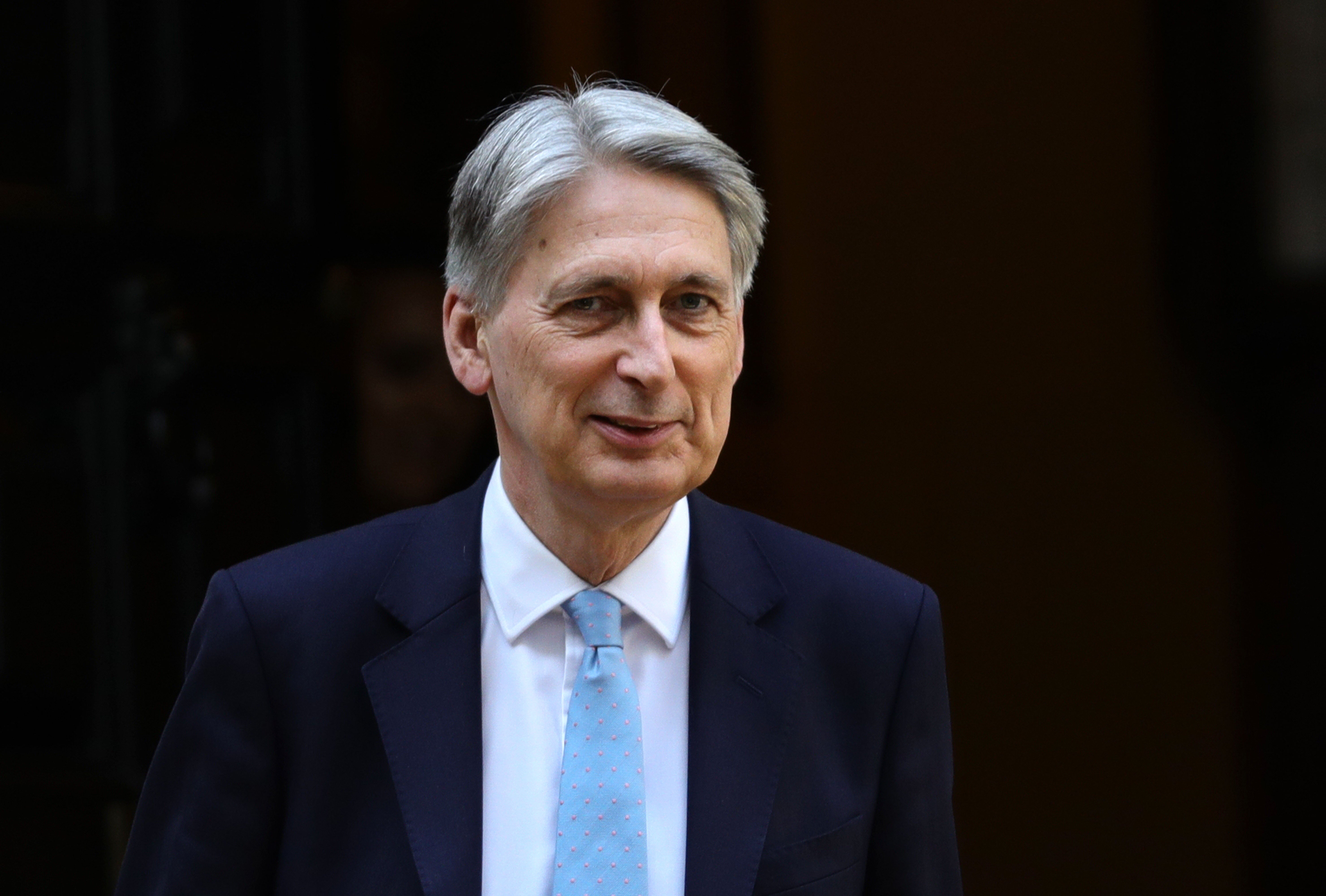Trump ‘hostility’ hampered efforts to secure release of Zaghari-Ratcliffe, says ex-foreign secretary
Philip Hammond says change of US administration was instrumental in enabling agreement with Iran

Your support helps us to tell the story
From reproductive rights to climate change to Big Tech, The Independent is on the ground when the story is developing. Whether it's investigating the financials of Elon Musk's pro-Trump PAC or producing our latest documentary, 'The A Word', which shines a light on the American women fighting for reproductive rights, we know how important it is to parse out the facts from the messaging.
At such a critical moment in US history, we need reporters on the ground. Your donation allows us to keep sending journalists to speak to both sides of the story.
The Independent is trusted by Americans across the entire political spectrum. And unlike many other quality news outlets, we choose not to lock Americans out of our reporting and analysis with paywalls. We believe quality journalism should be available to everyone, paid for by those who can afford it.
Your support makes all the difference.Efforts to secure the freedom of Nazanin Zaghari-Ratcliffe from detention in Iran were complicated by the “hostility” of Donald Trump’s administration, former foreign secretary Philip Hammond said.
Giving evidence to the Commons Foreign Affairs Committee, Lord Hammond said the arrival in the White House of President Joe Biden was key to the agreement which led to the release of the UK-Iranian dual national earlier this year.
He also disclosed how, as chancellor of the exchequer, he had been unable to authorise the settlement of a historic £400 million debt owed to Iran which finally secured the deal because strict legal criteria had not been met.

Lord Hammond, who was foreign secretary when Ms Zaghari-Ratcliffe was detained on spying charges in 2016, said he did not believe the debt – relating to an order for British tanks which was cancelled after the Iranian revolution of 1979 – was the initial reason for her arrest.
At the time, he said the Iranians had been frustrated that the international deal by which they had agreed to halt their nuclear programme did not lead to a promised opening up of trade and investment.
By 2019, however, when it was clear the debt was an issue, there was broad agreement across Government that the UK had an obligation to repay the money.
Lord Hammond said that, as chancellor, it was up to him, acting in a quasi-judicial capacity, to issue a licence for the payment under the terms of the international sanctions regime.

However, he was unable to do so until five criteria had been met. These included a court determining the exact amount to be paid – but he said hearings to resolve it were repeatedly postponed by the Iranians.
“When I was foreign secretary, I hadn’t appreciated the role of the chancellor in this process,” he told the committee.
“When I was foreign secretary, I believed I owned this process. When I was chancellor, I discovered the chancellor owns that process.”
He said his role as the decision maker was solely to consider whether the five criteria had been met.
“If the five criteria have been satisfied, it is appropriate to issue a licence. If they have not, it would not be lawful to issue a licence,” he said.
“Under the Ministerial Code and under the Civil Service Code, neither ministers nor civil servants can advocate a course of action which is unlawful.”
Lord Hammond said it was the change of administration in the US in 2021, when he was out of office, that finally enabled an agreement with Tehran.
“During the period of the Trump administration, the messaging from Washington was clearly hostile to compromise with Iran. We clearly had the sense that the letter of the law had to be adhered to,” he said.
“There may have been a sense that once the transition to the Biden administration occurred, there was a slightly more relaxed approach from the US administration, perhaps more willingness by the US administration to engage and discuss ways in which routes might be found.
“Throughout the whole period of the Trump administration, the hostility of the administration to the (Iran nuclear deal) was a complicating factor.”